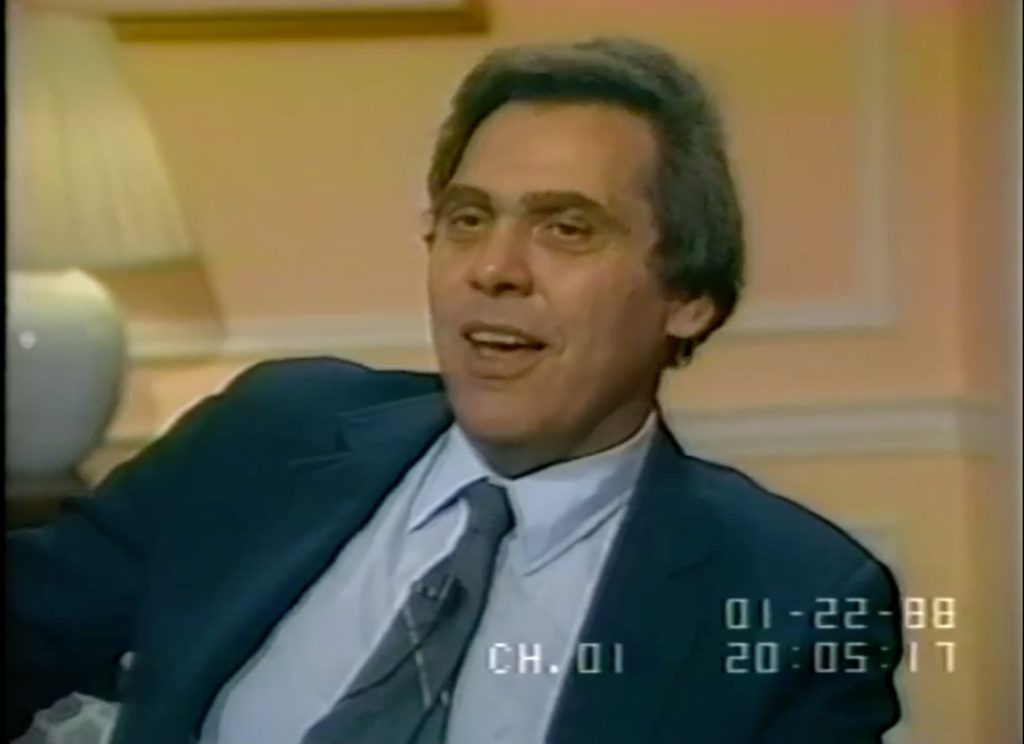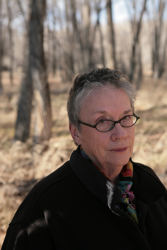Back in 1985, NYU communication professor Neil Postman published his book Amusing Ourselves To Death. This book has had an influence on me my entire academic career. Among the reasons it had such an impact on me was this interview C-SPAN founder did with Dr. Postman in the early days of the public affairs network:
In Amusing Ourselves to Death, Dr. Postman argues that the primary effect of television is that it changes how people see the world; that is, with television, people start viewing everything as entertainment. Young people get their news in a comedy format, watching The Daily Show the same way they watch MTV. They learn about politics on the same channel that shows a professional football game.
In an interview with Robert Nelson for the Civic Arts Review, Postman described the major point of Amusing Ourselves to Death:
“Television always recreates the world to some extent in its own image by selecting parts of that world and editing those parts. So a television news show is a kind of symbolic creation and construction made by news directors and camera crews. . . .
“Americans turn to television not only for their light entertainment but for their news, their weather, their politics, their religion, their history, all of which may be said to be their furious entertainment. What I’m talking about is television’s preemption of our culture’s most serious business. It is one thing to say that TV presents us with entertaining subject matter. It is quite another to say that on TV all subject matter is presented as entertaining and it is in that sense that TV can bring ruin to any intelligent understanding of public affairs. . . .
Unfortunately, the link to Dr. Nelson‘s interview is no longer active (Hey, the article is from 28 years ago!), but you can read a lot more of material about Dr. Postman on the Neil Postman Online Archive page.
I was reminded about Amusing Ourselves To Death today when The Weekly Standard editor Stephen Hayes tweeted this out:
There was much to disagree with in "Amusing Ourselves to Death," but every day Neil Postman looks wiser.
— Stephen Hayes (@stephenfhayes) January 8, 2018
Do yourself a favor and watch the C-SPAN interview and pick up a copy of this classic book.











Is a Wedding Cake Free Speech? Or Is That Even The Question?
On Tuesday, Dec. 5, 2017 the U.S. Supreme Court heard oral arguments on the case of Masterpiece Cakeshop, Ltd. v. Colorado Civil Rights Commission.
In 2012, back when marriage equality was yet to be the law of the land in the U.S., same-sex couple Charlie Craig and David Mullins traveled from Colorado to Massachusetts where they could legally be wed. They then returned to Denver where they planned on having a reception.
The couple went to Masterpiece Cakeshop to order a fancy cake. But as soon as baker Jack C. Phillips realized he was being asked to make a cake for a gay couple, he told them his Christian faith would not allow him to do so. He would happily sell them a birthday or graduation cake, but not a wedding cake.
Although Colorado did not yet have same-sex marriage, the state did have a public accommodations law that prohibited discriminating based on race, gender, religion and sexual orientation.
Phillips made a First Amendment argument that he was not discriminating against Craig and Mullins based on sexual orientation; instead, he was refusing to engage in speech by making a decorated cake that went against his religious values.
The Colorado Civil Rights Commission argued that making a cake for a customer was not an endorsement of the event the cake would be used at.
This case has generated an enormous number of opinion pieces making many arguments from many points of view. Here are several that take on the case with a range of approaches. Do not take my listing of these as an endorsement of any of them. I’m just trying to show how different people can address the same issue.
The basic news story:
And now the opinion pieces:
By George F. Will, Washington Post opinion writer
“Denver has many bakers who, not having Phillips’s scruples, would have unhesitatingly supplied the cake they desired. So, it was not necessary for Craig’s and Mullins’s satisfaction as consumers to submit Phillips to government coercion. Evidently, however, it was necessary for their satisfaction as asserters of their rights as a same-sex couple.”
By Dana Milbank, Washington Post opinion writer
“Piece of cake: If you can’t do it to racial and religious minorities, women and the disabled, you shouldn’t be able to do it to gay people.”
By Greg Weiner, associate professor of political science at Assumption College
“In Masterpiece Cakeshop , LGBT advocates can hope for a pyrrhic victory at best. Conscientious objectors to same-sex weddings may be pressed into service, but only at the long-range cost of intensifying their opposition. A vindication of religious liberty, meanwhile, would tarnish that value, however unfairly, with the taint of discrimination.
By Nathaniel Frank, director of the public policy research portal What We Know
“The reason is that the Constitution guarantees a right to equal dignity, and turning people away from public accommodations — or slicing up the public by granting individuals a license to “opt out” of the public weal — denies people that dignity. No constitutional right is entirely unrestricted, but in deciding the balance between First Amendment and equal protection claims, the courts have already distinguished between the right to hold or espouse a belief — considered “absolute” — and the right to act on it with impunity. The ‘free exercise of one’s belief,’ the courts have said, is ‘subject to regulation when religious acts require accommodation to a society.'”
Marc A. Thiessen, Washington Post opinion writer
“Even if you disagree with Phillips, you have an interest in seeing him prevail. The First Amendment protects unpopular speech. Speaking out in favor of same-sex marriage was once unpopular. And views that are popular today may be unpopular in the future. To maintain a free society, we must have the freedom to disagree — and tolerance for those who disagree with us.”
And finally…
By R. Eric Thomas, playwright and staff writer at Elle.com
“I ventured up to the third floor and found a table with a surfeit of cake options, but no labels. “Do you think one of these is lemon?” a woman next to me asked. I turned to her: “There’s only one way to find out.”
She replied, “Eat them all?” My soul mate.
She asked me if I was enjoying myself. I shrugged. “Apparently, you’re invisible without a bride,” I said.
She told me she understood. She wore scrubs, with her hair tied back, a marked difference from the party-casual dress of many other attendees. She explained that she was a vet and had accidentally left her engagement ring at work. Grabbing two more slices of cake, we wandered away from the table.”